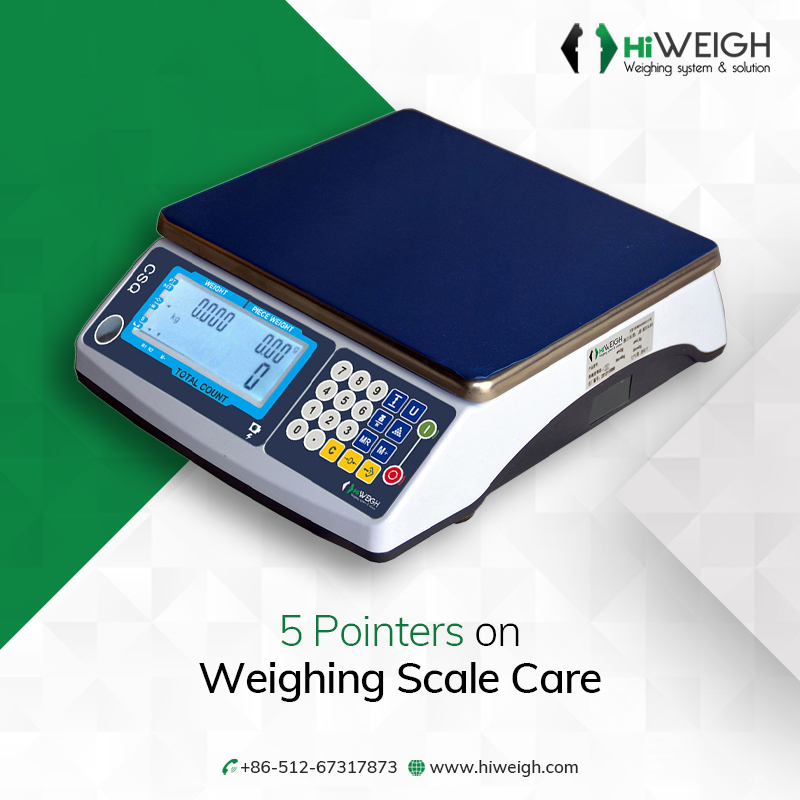Weighing technologies play a monumental role in improving the supply chain operations, meeting the customers’ requirements, enhancing the operational efficiencies, and meet legislative requirements in a business. Hence, like any other tech equipment, you should ensure the proper upkeep of your weighing devices to keep the weighing operations of your business robust and effective. But when it comes to daily maintenance, you may tend to get a tad casual and take weighing scales for granted. Even though an electronic weighing scale is sturdier and more durable than an analogue scale, it requires proper maintenance and should be handled with care. To guide you in the right direction, we list here some important care tips that you can implement and reap benefits. So, keep reading to know if you have been maintaining your electronic scales the right way.
Less Exposure to Moisture – Even though most weighing scales have high IP ratings, you should try to keep them away from moisture as much as possible. The reason being, if the scale is placed in an environment full of moisture, the chances are high that such exposure can hamper the daily functioning of your weighing device. Unless your scale has the highest rating of IP69, you should avoid using it in the wet and moisture-laden weighing environment.
Avoid overloading – Your electronic weighing scale must have a specific weighing capacity, right? Don’t overload the weighing device and cut down its efficiency to half. Abide by the said weighing capacity if you want it to serve your weighing needs for the next few years. Placing excessive load on the scale can damage the sensitive measuring components of the scale. If you ever see any of your workers indulging in such a practice, you should strongly discourage them from doing so.
Don’t use low batteries – In most cases, digital scales malfunction because they run on low batteries. Replace the batteries whenever you see the device being sluggish and is showing inaccurate readings. Also, avoid using faulty power adapters as that can show wrong measurements. In case you ever encounter this problem, make sure you check the batteries first and then take the next steps like changing the power source, calibration, or replacing the scale.
Protect from temperature – Digital scales may not work up to their optimum level if the temperature of the weighing environment fluctuates often and to an extreme extent. If you need to use your electronic weighing scale both indoors and outdoors, you should install load cells that can withstand such large changes in temperature. Always go for quality-certified load cells that alone can ensure the accuracy of your weighing device.
Excessive or careless use – Your scale may be durable and sturdy, but there is a limit to which it can endure the rough handling. Careless behaviour and excessive trauma can damage the sensitive components. And if you have been using it excessively for a long time, then you may have to replace it with a new one now. Calibration can help extend the longevity, but when the overall structure starts wearing there is little you can to increase its shelf life. Hence, you should use your scale with care as much as possible.
Closing Thoughts – No matter which business you are in and what weighing scale you use, following our care tips can go a long way in improving your weighing efficiency and protecting your business interests. And if purchasing a new weighing device is the only option left, you may want to get in touch with HiWEIGH.
